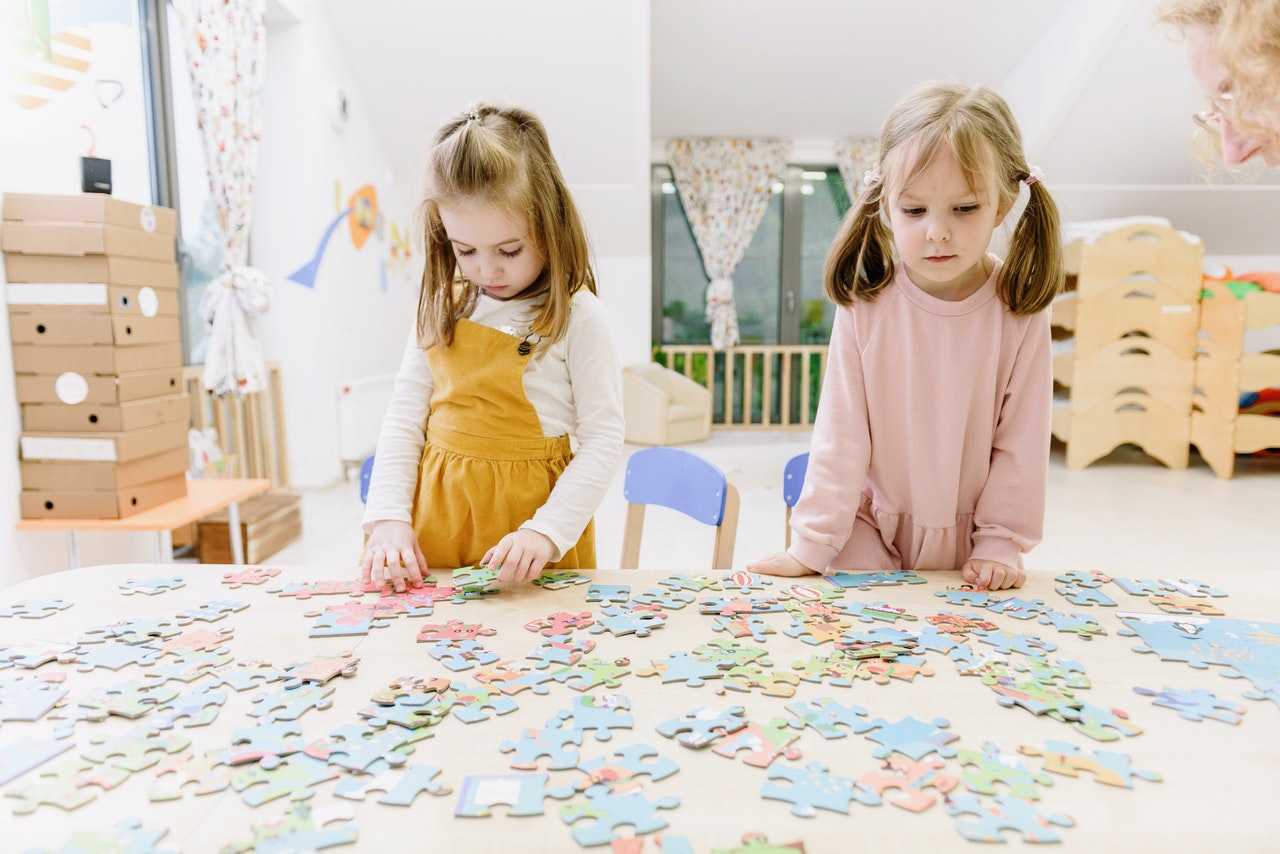Puzzles, invented in 1760 by John Spilsbury, consist of board games extremely loved by both adults and children. In fact, they are based on a few easy steps, with the aim of joining various pieces to compose a single predefined image. Today there are many models on the market, from 3D ones to versions for small children, with fairly large pieces that are easy to handle and observe. In fact, a game much loved by mothers is the puzzle mat, where the pieces are so large that, once joined together, they create a real mat on which to play, color and run.
Why is it important for children to play with puzzles?
The puzzle stimulates cognitive abilities of the child, as through the union of the various tiles, the child acts with the aim of solving the game. The puzzle also allows the player to manipulate the various pieces, thus aiming for develop dexterity and curiosity. Being a game to be played in sequences, it gives the child the opportunity to learn to think step by step, perhaps indicating each piece to the parent who will help him formulate the final composition. In this phase the adult has the task of pointing out the differences between the various pieces and stimulating the little player to look for pieces of a particular color or shape. Being a game that requires maximum focus, it is important that the parent always uses motivating phrases, which address the child’s frustration, such as “Bravo/a, you’re almost done!”, “You were very good! Keep it up!”. By playing, the observation skills, in fact those who make puzzles have an advantage in identifying the details. Logic and intuition lead to reasoning and the ability to put in order encourages the child to be very precise and tidy in everyday life. It will also be easy to deduce that the puzzle is the ideal game to learn what the achievement of a goal. Finally, spatial skills are also developed, as the puzzles allow one to perceive, act and operate using spatial coordinates, actively recorded by the player’s mind.
University research on children playing with puzzles
A research conducted by the University of Chicago on 53 pairs of parents with children aged between 26 and 46 months showed that children who had played to complete puzzles were more skilled in translating and rotating shapes. According to the psychologist Susan Levin this information is more than positive since the ability to mentally transform shapes is a clear sign of a high predisposition to discipline STEM (Science, Technology, Engineering and Mathematics). Also in this case therefore, giving a puzzle as a gift is confirmed as an excellent idea, especially if directed to a child.
Furthermore, the fact that puzzles are an excellent stress reliever and the perfect solution to pass the time, fighting boredom, should not be underestimated. Hence, long winter afternoons and gatherings with friends can become moments of sharing and fun.
